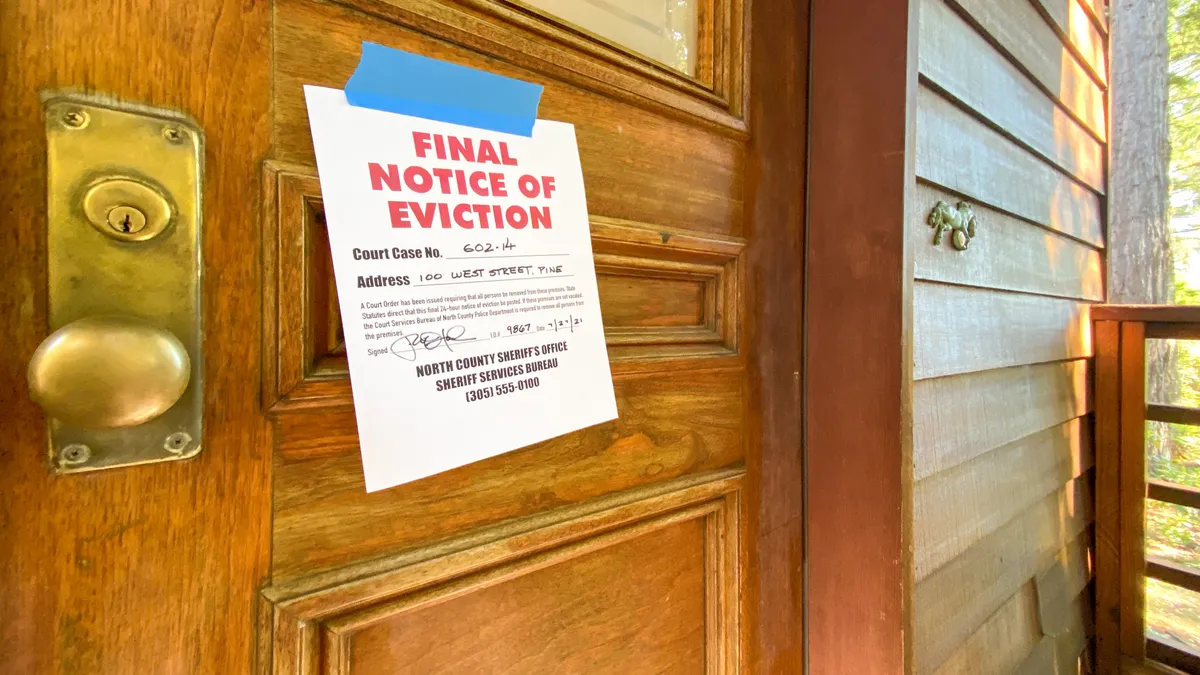Jasmine Rangel is a senior housing associate at PolicyLink, a national research organization advancing racial and economic equity. She was previously a research specialist at Princeton University’s Eviction Lab.
The Biden administration recently took important steps to advance fair housing by announcing multiple measures to protect renters from discriminatory screening practices — a major driver of housing insecurity in the United States.
The steps include new guidance from the Department of Housing and Urban Development that addresses the use of credit history, eviction history and criminal records to screen prospective tenants in compliance with the Fair Housing Act. Thanks to the work of advocates nationwide, HUD also proposed in April to change its nearly 50-year-old policy of excluding people with recorded involvement in the carceral system from accessing public or HUD-assisted housing.
After years of relentless attacks on the Fair Housing Act by the Trump administration, these changes are something to celebrate. It’s now on states and localities to build on these policies and fix the screening practices locking millions out of affordable housing.
Our country faces a deepening affordable housing crisis, with a record number of rent-burdened Americans and millions of households that are still behind on rent payments due to the economic impacts of the COVID-19 pandemic. Evictions have skyrocketed in many cities since pandemic protections and resources ended, and Black and Latina women and young children are most at risk. With an increasingly ruthless housing market — where applying for several apartment units can end up costing hundreds of dollars, and renters are up against at least eight other applicants, on average, when trying to secure a place — governments at all jurisdictional levels must implement solutions. Thankfully, policymakers have some great examples to look to which can go a long way to protect tenants from discrimination and long-term housing insecurity.
One key solution is to regulate the use of screening reports. As a result of tenants' demands, policymakers across the country are exploring and passing policies that dismantle the significant barriers that tenant screening creates for access to stable and healthy housing. These policies, which 16 states and several localities have already enacted, regulate public access to certain records and create restrictions on how they can be used in rental decisions for prospective tenants. They offer a blueprint for legislators to use at the state and local levels.
For example, Philadelphia's Renters’ Access Act, enacted in October 2021, created a tenant screening policy that instructs landlords to provide uniform screening criteria to prospective renters and prohibits blanket bans for people with eviction records and low credit scores. It also requires that landlords tell rejected tenants in writing why they were denied and allows those rejected to dispute incorrect information, explain mitigating factors and show how their circumstances have changed. The policy has been heralded as a way to promote equitable housing access by advocates, legal organizations and elected officials.
Building on its success, Pennsylvania state Rep. Ismail “Izzy” Smith-Wade-El introduced the Ready to Rent Act earlier this year, a new bill that promotes fair housing access by limiting public access to eviction records — legislation that would help thousands of Pennsylvania families find safe housing.
California has a law that automatically seals an eviction record for 60 days unless a case goes to trial and a judgment is made in favor of the landlord. If a case takes longer than 60 days to go to trial and receive a judgment, the case remains permanently sealed. Since this law was passed in 2016, it has had a positive impact on renter stability in the region, according to a 2023 Urban Institute report based on interviews with lawyers, legal experts and policy advocates.
States have followed HUD’s lead before in implementing fair housing guidance to great success. HUD’s 2016 guidance clearly underscored that housing policies that institute a blanket ban on people with criminal records violate the Fair Housing Act. In the following years, states and localities that passed their own “Fair Chance” housing policies included New Jersey, Seattle and Oakland, California. HUD’s most recent guidance similarly provides ample direction for states and localities to protect renters of all backgrounds during a time of escalating crisis in our housing system.
Specifically, lawmakers should enact laws that require landlords to provide publicly available, uniform screening criteria for all rental housing applicants, similar to the requirements outlined in Philadelphia's Renters’ Access Act. They should also pass legislation that restricts public availability of eviction records where tenants prevailed, the case was dismissed or a settlement was reached. Further, lawmakers should require landlords to allow applicants to challenge, correct or clarify any disqualifying information that may have been used against them to make a decision. By instituting these measures, policymakers will ensure that their local housing markets are following best practices for complying with the Fair Housing Act.
Millions of people are struggling to stay in their homes or find housing in the first place, and this will not improve without government action. HUD’s new guidance, paired with examples of successful policies across states, gives policymakers ample opportunity to improve access to high-quality, affordable housing for millions of people. Eliminating discriminatory screening practices is a vital piece of the solution to the housing crisis — one action that lawmakers must take to bring relief to millions of renters.


















